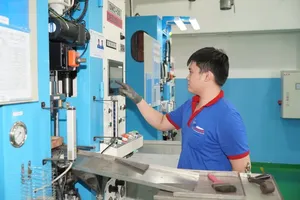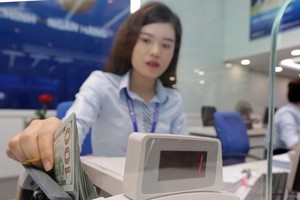Currently, no commercial bank offers interest rates above 9 percent for a 6-month term, with most large commercial banks applying interest rates ranging from 8 to 8.5 percent per annum. The lowest six-month deposit interest rates in the market are offered by VietinBank, Vietcombank, BIDV, and Agribank at 5.8 percent per annum. For the above 12 months, only ABBank keeps the interest rate at 9.1 percent per annum. Other commercial banks cut interest rates for 12-month terms to 8.3-8.5 percent per annum, especially VietinBank, Vietcombank, BIDV, and Agribank have interest rates at only 7.2 percent per annum.
Moreover, several commercial banks are offering many preferential loan interest rate programs for businesses. For instance, Agribank recently provided a credit package of VND100 trillion and US$500 million for short-term preferential loans with interest rates 1.5 percent per year lower for loans disbursed in Vietnamese dong and 1 percent per annum lower for loans in US dollar compared to current interest rates. BIDV also has a credit package of VND100 trillion to lend for production and business activities with interest rates from 10.3 percent per annum in the first 12 months or from 10.9 percent per annum in the first 18 months.
Experts predict that the downtrend of deposit interest rates may extend to the second quarter due to several factors, such as the return of a large volume of deposits to the banking system in the fourth quarter of 2022, the trend of reducing both deposit and lending interest rates by commercial banks under the direction of the Government and the State Bank of Vietnam, and the promotion of public investment by the government, thereby injecting more money into the economy.
Michael Kokalari, Chief Economist of VinaCapital, said that the recent collapse of the US SVB Bank and the loss of liquidity of the Swiss Credit Suisse Bank did not have a significant impact on Vietnam's economy but created favorable conditions for the SBV to lower interest rates and attract cash flow. Additionally, the weakening of the US dollar will support the Vietnamese dong appreciation, allowing the SBV to accumulate foreign exchange reserves. As the pressure on the USD/VND exchange rate decreases, conditions may be created for VND interest rates to decrease, which would in turn support the economy.
























